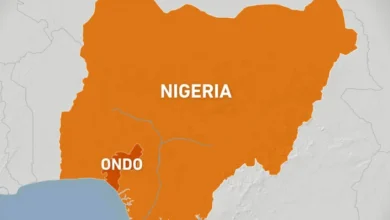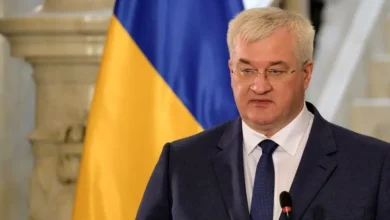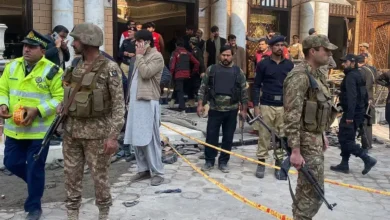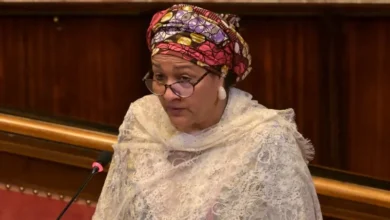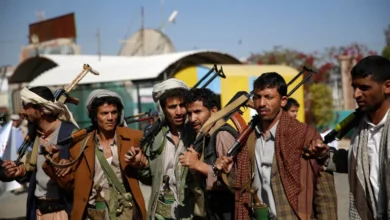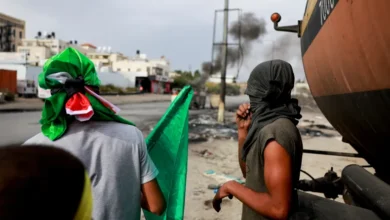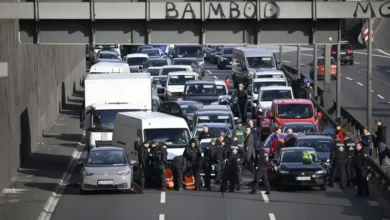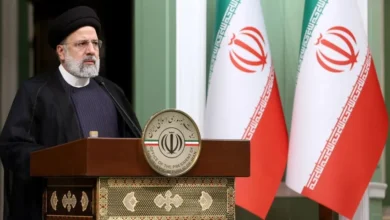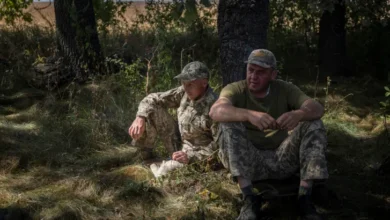China’s stance on the Russia-Ukraine conflict: Balancing act or neutral observer?
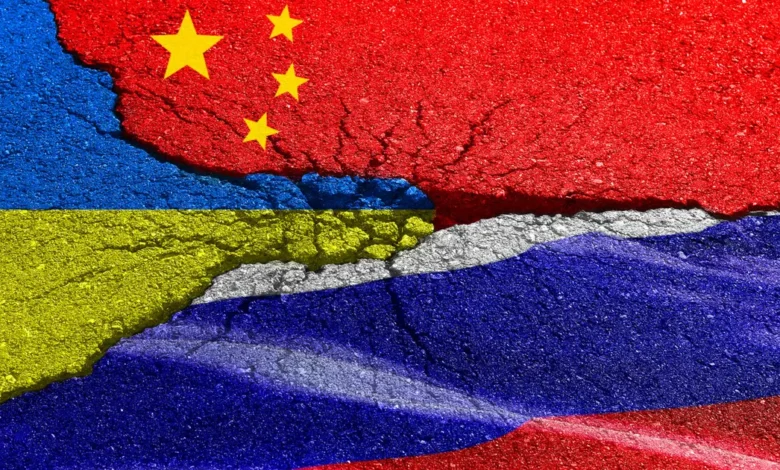
As the Russia-Ukraine war surpassed 500 days, several key questions remain unanswered, an important one being that of China’s stance on the conflict.
Beijing has formed close ties with Moscow over the years. Under President Xi Jinping’s rule, China invested heavily in its relationship with Russia and considers it a key ally in counterbalancing against the United States and Europe as part of Beijing’s plans to disrupt a Western-centric world order.
Xi and Russian President Vladimir Putin have met several times over the past decade, most recently in March, when the duo signed a “no limits” partnership just after China released a 12-point peace plan to resolve the war in Ukraine, a proposal Putin said he viewed “with respect.”
In May, China sent its special envoy for Eurasian affairs, Li Hui, to Ukraine as part of a 12-day tour of Kyiv, Warsaw, Paris, Berlin, Brussels, and Moscow in a bid to find common ground for an eventual political settlement of the war.
While China has showed its support to Moscow by deepening its economic and strategic partnership with Russia, it has to date, neither explicitly backed nor denounced Russia’s war efforts.
Balancing relationships
As the war rages on, Beijing is largely trying to balance its various strategic relationships, teetering along its business and strategic partnerships with US, Europe, and Russia.
“On the one hand, China values its ties with Russia, with which it shares mutual animosity toward US influence, but on the other it is also concerned about its image in Europe, which sees a just resolution of the Ukraine war as a core interest,” Lily McElwee, a fellow on Chinese studies at the Center for Strategic and International Studies, told Al Arabiya English.
China’s partnership with Russia has become particularly more important as its relations with advanced industrial democracies have soured and Beijing looks to diversify its trades, according to McElwee.
China therefore, seeks to deter Brussels and other European countries from “considering further moves to diversify their supply chains away from China and impose additional controls on dual-use technology transfer,” she added.
Moreover, Beijing is attempting to build its diplomatic influence among developing states and emerging powers, and as part of that it needs to be seen as a responsible player in the war in Ukraine, which alongside ensuing actions has magnified economic issues in many of these countries.
Beijing is actively trying to show that it is taking steps to deescalate the conflict, but so far it has achieved no concrete milestone with Putin or Ukraine, despite Xi’s close ties to the former.
“The problem for China is that it’s efforts so far have proven unsatisfactory to Ukraine and Europe,” McElwee said. “It’s 12-point position paper suggests a political settlement as soon as possible, but that means it would lock in Russian territorial gains.”
Xi has also kept an open dialogue with Ukraine. Beijing even showed support for Kyiv’s claim of reinstating its 1991 territorial integrity at a Europe-China Business Summit in June, which includes Crimea – a peninsula annexed by Russia in 2014, sending out signals that it is willing to take steps to end the war.
Beijing has adopted a rather neutral position on the conflict as it continues trade relations with Russia but has so far not sent any military aid to Moscow – a balancing act to protect Chinese interests.
Continued neutrality
China continues to maintain a neutral stance on the war, but it might find it difficult going forward as the war sees intense moves from NATO to support Ukraine and levy sanctions against Russia, along with unprecedent events unfolding in Moscow itself.
The recent unsuccessful coup against Putin attempted by his trusted Wagner chief Yevgeny Prigozhin, exposes the volatility of the situation in Russia and the high risks for Beijing given Xi’s close ties to Putin and the broader threat in China’s backyard – it shares a more than 2600-mile border with Russia.
Beijing has remained relatively quiet about the rapid developments inside Russia. Post the failed mutiny, the Chinese Ministry of Foreign Affairs released a brief statement referring to the attack as Russia’s “internal affair” and expressed Chinese support for “Russia in maintaining national stability.”
China has however, warned the Kremlin against nuclear escalation, expressed concern for the impact of the war on civilians and called for the cessation of hostilities, according to Patricia Kim, a foreign policy expert at the Center for East Asia Policy Studies.
In a commentary article published on the Brookings Institution website, Kim writes while “Beijing has no desire to see Putin’s downfall … it is also unlikely to take extreme steps to help Kremlin in ways that could directly undermine China’s own national interests.”
China has managed to avoid major sanctions by remaining neutral and mostly abstaining from sending any direct military aid to Russia.
At this critical juncture in the war, Beijing appears careful not to overstep its bounds – it is willing to continue tacitly supporting Russia, but only to the extent that it remains beneficial for Beijing, keeps Europe in play and does not provoke sanctions from the West.
However, it remains to be seen if the recent upheaval in Russia and NATO’s loud backing for Ukraine at the Vilnius summit will nudge China to take a stronger position on the Russia-Ukraine conflict or if it will continue to monitor the war as it unfolds, under the guise of neutrality.
